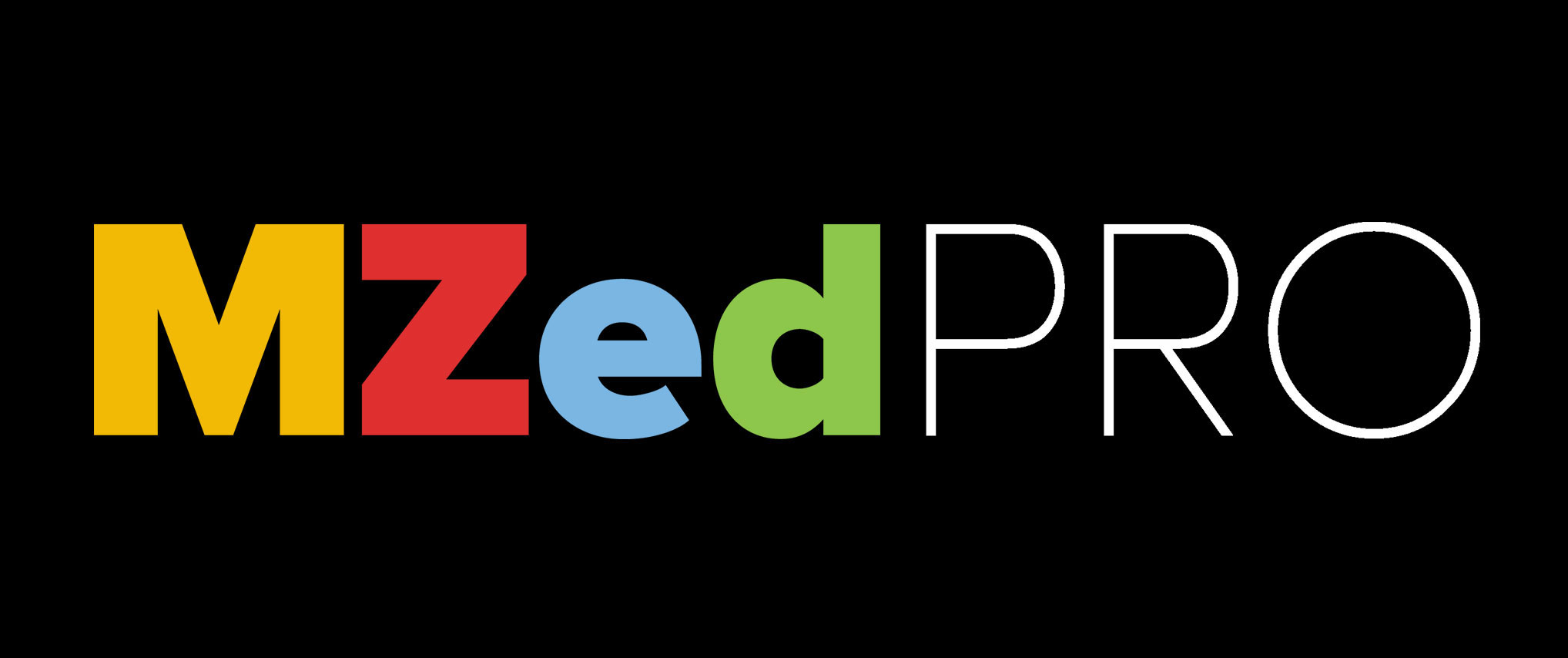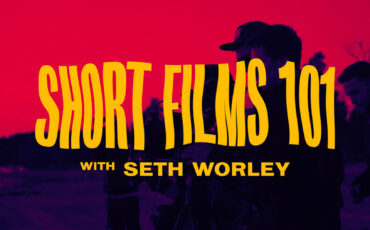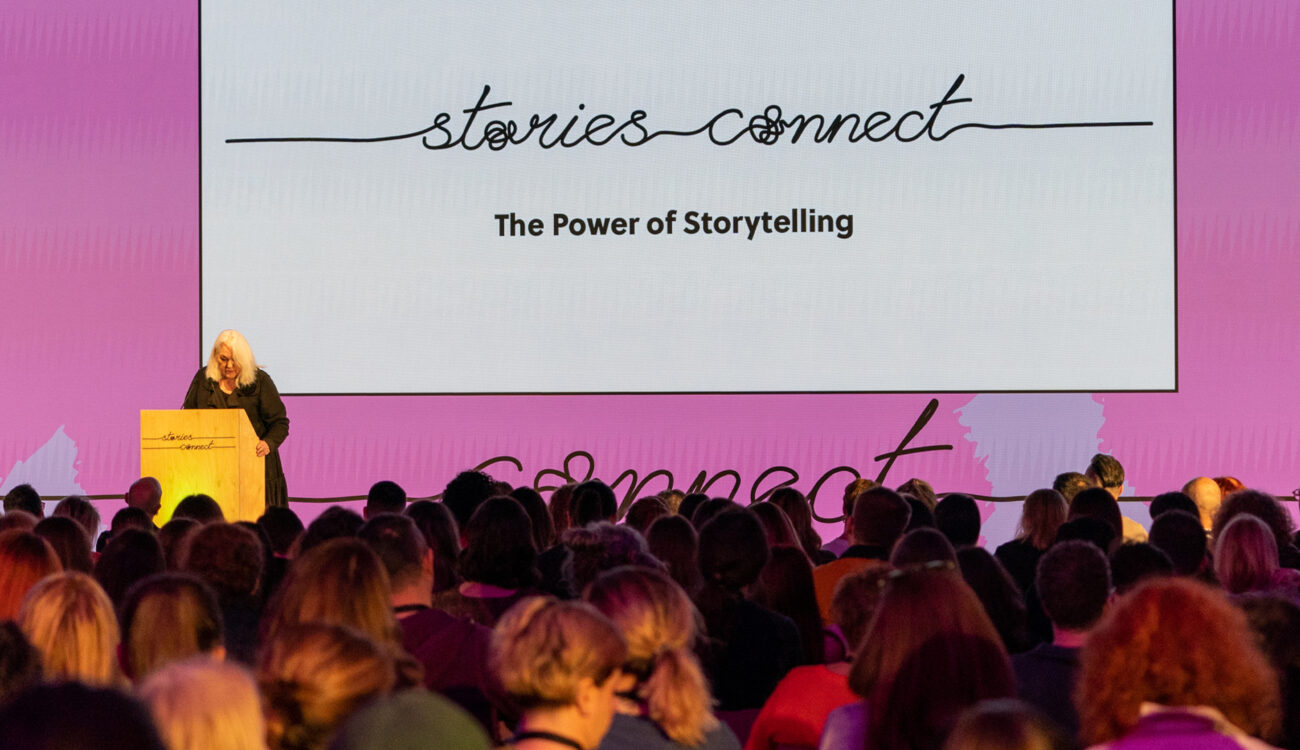
What do all good stories have in common? A strong protagonist? A conflict? A thought-through suspense curve? An emotional dilemma? Or maybe all of the above? We can discuss this question from a structural point of view in the comments if you wish. However, there is one thing on which we will likely agree. Good stories connect. They connect humans with each other. They connect one person to another person’s experience. They connect us with our inner selves.
“Connect” was the topic of this year’s conference, “The Power of Storytelling” in Bucharest, which celebrated its comeback after a long break. As usual, the event gathered participants and speakers from all over the world and from different disciplines. You can’t call it an ordinary conference, though. It was more like group therapy and a safe space for people who have stories in their blood – journalists, documentary filmmakers, writers, marketing specialists – and those who love those stories. Below, I want to share some of my personal storytelling insights and takeaways that I believe to be universal if a) you’re human and b) you work with stories.
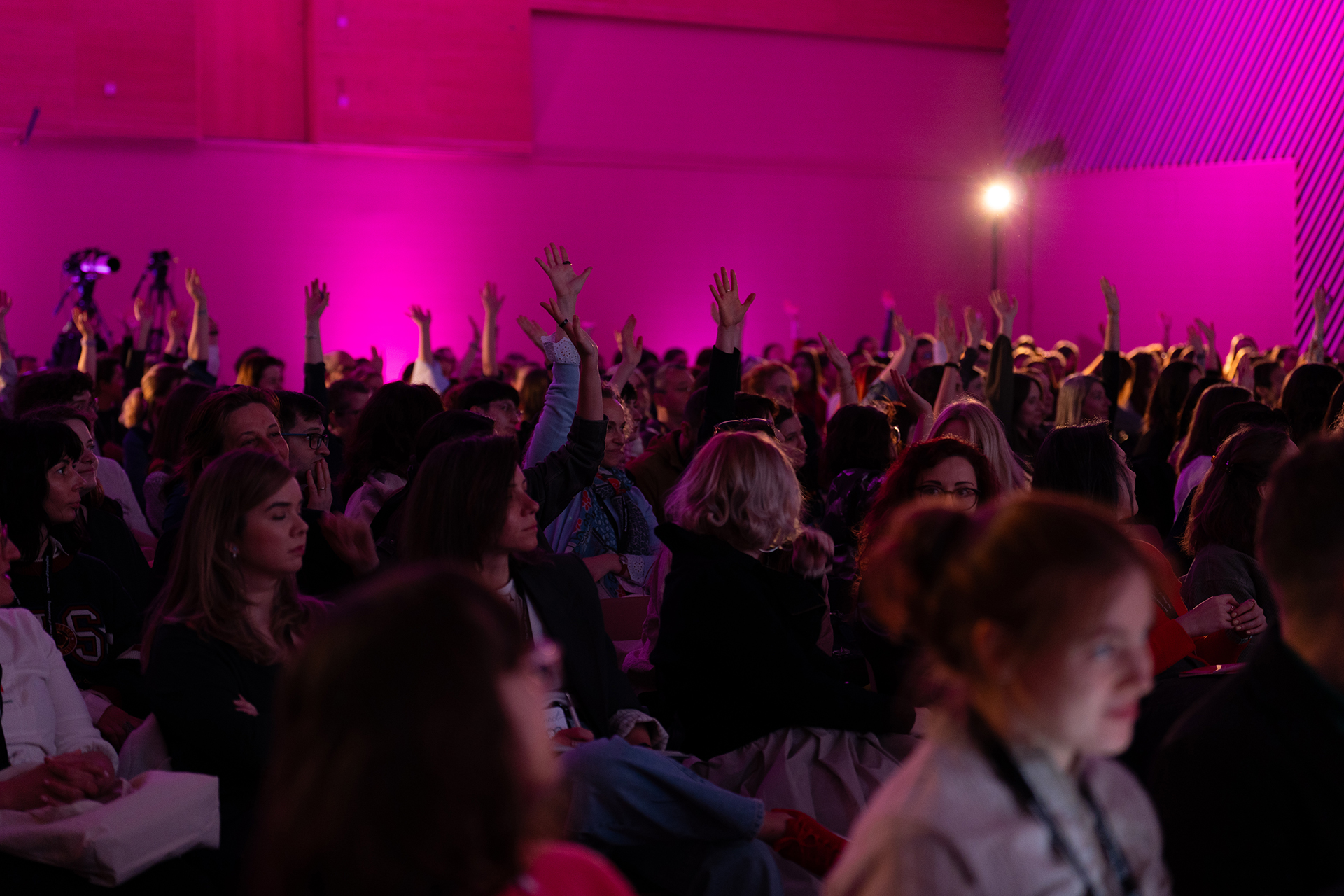
How technology affects good stories
Kranzberg’s First Law of technology goes like this:
Technology is neither good nor bad; nor is it neutral.
As Chris Wiggins, Chief Data Scientist at The New York Times and an associate professor of applied mathematics at Columbia University, reminded us in his keynote, the same applies to humans. People who develop technology are also neither wizards nor demons. At the same time, they are surely not neutral.
Writing 101
For instance, we all know how social media affects our thoughts, tastes, decision-making, and even self-esteem. If you work in the area or at least have had the chance to watch the striking documentary “The Social Dilemma,” then you probably can recall the exact mechanisms that modern algorithms apply to influence users. If not, it’s a perfect moment to revisit the infamous experiment by Facebook from 2010, where the company shared how they used their social network to bring Americans to vote.
This text is not a manifesto on fighting the algorithms. However, I’d like it to be an impulse to think about how we write, film, and communicate our stories in times when social media is directly connected to the market and the “successful” topics are the ones with the most clicks.
So, the question every storyteller should be asking themselves: Is my mission to raise sales? Or am I trying to help people make sense of the world? Please, pick your poison.
High conflict vs. good conflict
What are the topics that get the most clicks? Controversial ones driven by powerful emotions, and for sure, fierce conflicts. Unfortunately, our current state of the world offers enough of those to pick from.
Yet the conflicts per se are not bad, explains Amanda Ripley, one of the conference’s speakers and a New York Times bestselling author. They are part of human nature and can be highly constructive. It’s the kind of conflict that matters. In her most recent book, “High Conflict,” Amanda divides them into two groups. High conflict is the polarizing one. It consumes everyone and involves humiliation, corruption, and “us vs them” thinking, where one group wants only to win over the other. Conversely, good conflict is like stressful friction that (eventually) creates connection and understanding. Its final goal is for someone or something to get better. Both are also powered by different emotions:
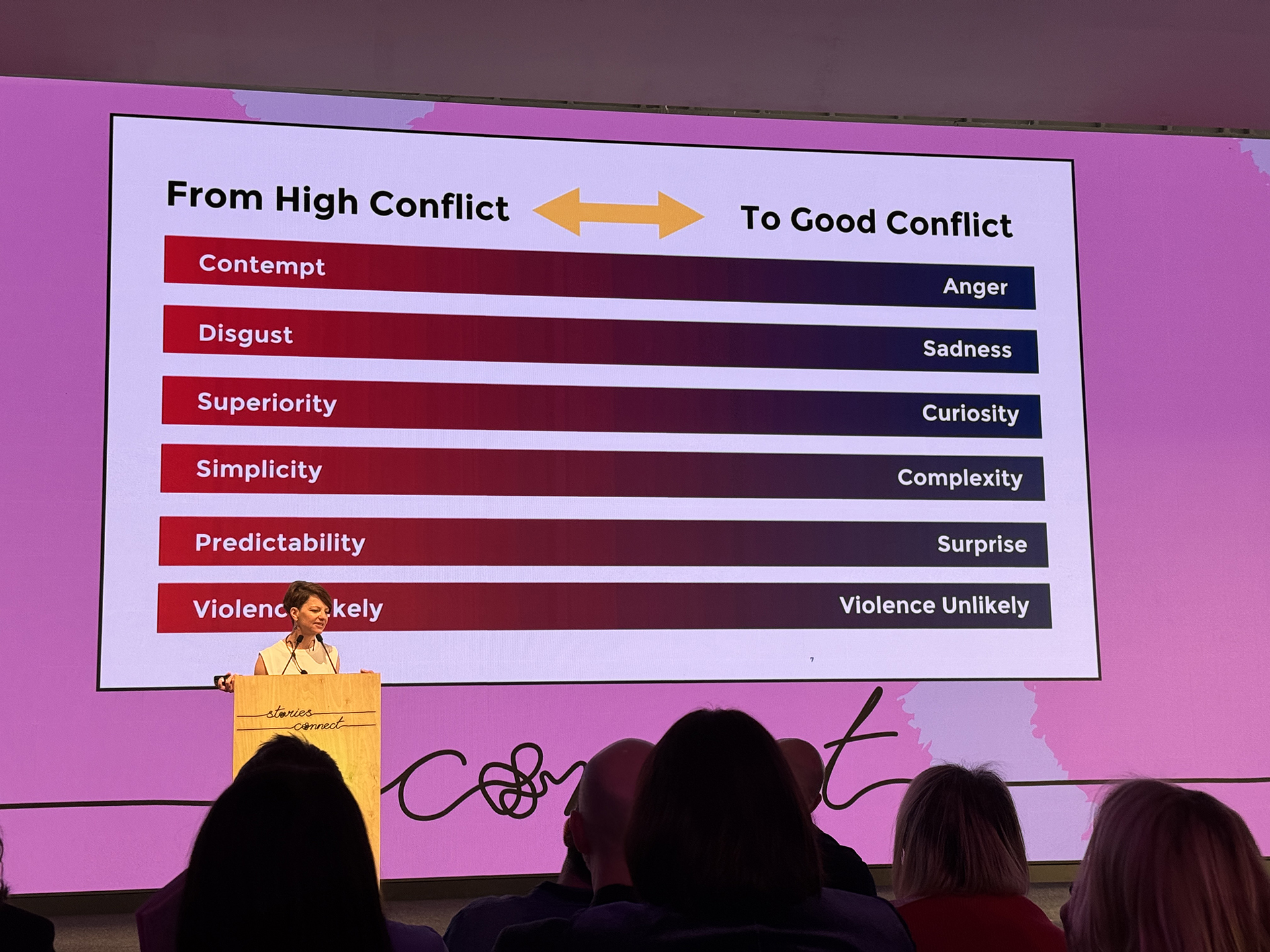
High conflict creates clickbait headlines. Yet, it isn’t about sense-making. As Amanda Ripley emphasized in her keynote, “Any intuitive thing you do in high conflict will make it worse.” So, how can we writers, filmmakers, and journalists approach it in our work? Here are some of Amanda’s tips:
- Investigate a functional conflict instead of a dysfunctional one. You and your audience strive to know how someone did it and not how someone else failed;
- Don’t look for a villain to blame. Try to identify the understory instead. What is this particular conflict really about?
- Amplify the exhausted majority and not conflict entrepreneurs. Search for people who are unsure and don’t want to pick a side. They often have interesting stories to tell.
You’re not listening!
“You’re Not Listening” is the title of the book written by another conference speaker and author, Kate Murphy. It is also a way to address the problem that is widely spread in our society. Even when we go outside and interact with others, we don’t truly listen. We have forgotten how.
As Kate puts it, a lot of people think they are good listeners (me included), but they are not. It’s not only about smartphones and notifications that often rob our attention. Let’s take a classic interview situation as an example. How often do you start to form the next question or response in your head while your interviewee is still speaking? That’s because we’re used to the thought that a conversation (professional and not) should flow seamlessly, without breaks. Yet, the moment you go back into your head, you’re not listening. You’re missing something from the story.
The more we miss, the less empathy we can build in our piece. How can we tell good stories without it? The good news is, according to Kate Murphy, listening is a skill that can be trained. Try observing it as a meditation. Next time you talk to someone, sincerely immerse yourself in what they are saying, just like in a good book or an engaging movie. If other thoughts arise, let them, but don’t get involved with them. After your conversation partner has finished, give your brain a break to think about how to respond. Repeat this exercise as long as it takes to remember how to listen.
Nature hath given men one tongue but two ears, that we may hear from others twice as much as we speak.
Greek philosopher Epictetus
The impact of good stories
One of the quotes that stuck with me, and that feels reassuring and liberating, came from seasoned reporter and Pulitzer Prize winner Jacqui Banaszynski:
There is no metric that can measure the impact on a human’s heart.
Yes, we can measure clicks, views, likes, sales, and the film’s success at the box office. But does it mean that other stories are unworthy? Of course not.
I remember watching David Lowery’s supernatural drama “A Ghost Story” for the first time in a shared apartment during our student life. Two of my friends (interesting, intelligent people) fell asleep and said afterward: “What a boring movie!” I, on the contrary, cried the whole night because it hit me so hard. It became a transcendental experience for me, which, in some aspects, transformed my personality and how I see life.
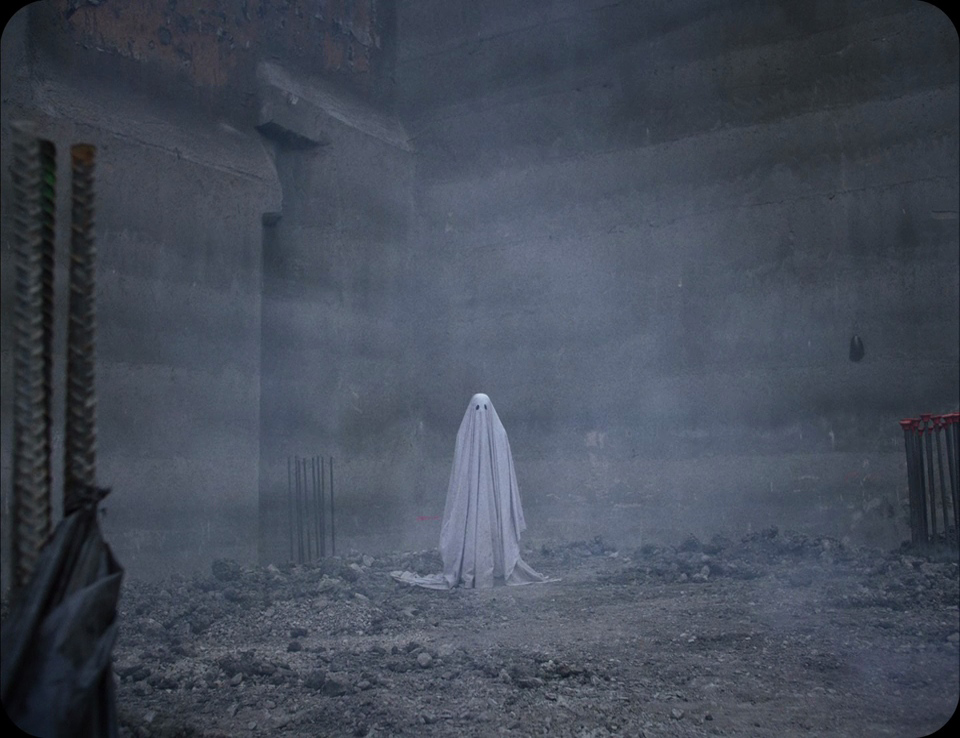
We perceive stories differently, and that’s okay. It’s also a good thing to remember when you craft something creatively. You never know who your work will touch and in what way it will change their lives. Moreover, we can’t compare this impact to the number of awards or the profit from a theatrical release.
What’s important in crafting good stories?
Rhiannon White is a co-founder of “Common/Wealth,” an award-winning political theater company. She comes from a council estate in Cardiff and was always told that her working-class background wouldn’t let her join this elite industry. Well, she reimagined it together with her friends and created a documentary theater on her own terms. They took it right to the community: the streets, the abandoned buildings, a residential house, a boxing gym – places where people who might not go to the theatre might come instead. They made it accessible and interesting for everyone by taking real people and real stories and basing their plays around them. As Rhiannon said in her keynote, people are experts on their own stories. So, give them a voice. She also believes in a DIY approach. Don’t wait for permission. Follow your passion and do it your way.
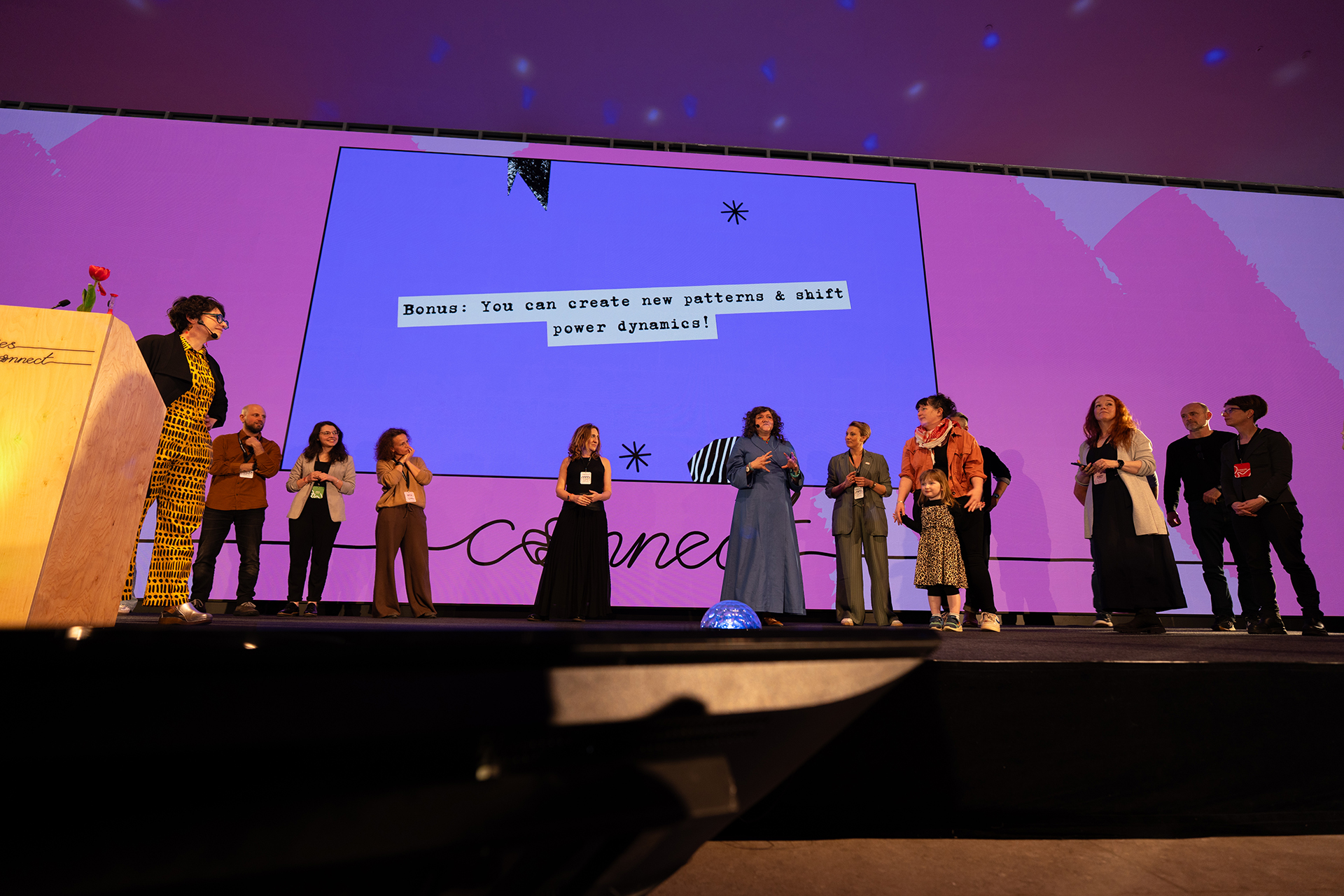
In truth, good stories are everywhere. The most difficult thing, if you’re a writer, filmmaker, video creator, journalist, or any other kind of storyteller, is actually taking them and getting them to work. Another quote by Jacqui Banaszynski that I took home was:
My superpower certainly wasn’t writing – it still isn’t. It wasn’t confidence – it still isn’t. It was working hard and showing up.
When the Pulitzer Prize winner puts it like this, I believe her words can be a source of encouragement for all of us. Work hard, show up, and one step after another, do the next right thing.
Feedback is essential
Unfortunately, we live in a world where hate comes in powerful waves. First, because it is fueled with strong emotions like rage or fear. Second, the internet makes it easier to forget about the ethics of human communication. So, often, even if your story touches people’s hearts, their voices won’t be as loud as the ones who are aggressive. Sometimes, your thoughtful viewers would go into their inner space for a mindful reflection and not get back to you at all, which is okay but, sadly, discouraging. The thing is, it’s in our hands to make those positive voices louder.
If you found, read, listened to, or watched a story that made you feel a connection, touched your heart, broadened the way you see the world, or evoked empathy within you, please reach out to its creators. Tell them how their story changed your perspective. Acknowledge their hard work. Help them see that they are not telling their stories into a void and that they do, indeed, make a difference, even in dark and difficult times.
What do you think about storytelling nowadays, and how is it changing? Are there other thoughts and tips you’d like to share on this topic? Let us know your feedback in the comments below!
Feature image credit: Tudor Pana / The Power of Storytelling.



